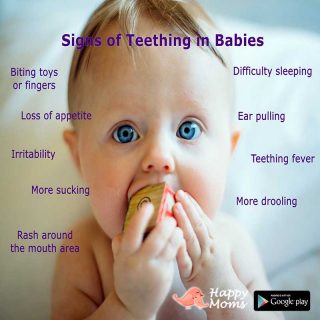
Food Allergy in Babies
An allergic reaction in babies can occur due to several reasons. It usually takes place when the body has an unfavorable reaction to a usually harmless material e.g., a soap, or certain food. Babies have sensitive skin and body, which makes them more likely to get a reaction than adults. Knowing the reason for the allergic reaction can help parents to avoid and treat it in the future.
When a body is allergic to a certain food or product, it reacts as if it was something dangerous for the body. It starts producing the antibodies to battle the food allergen, through the body’s immune system, which helps prevent infection and disease.
Common Food Allergens:
Every time you introduce a new food to your baby keep a track for any allergic reaction. There are around 160 food items which can cause allergy. The following food groups are most commonly known to cause allergy most of the time:
- Cows’ Milk is the most common cause of allergy in Pakistani babies
- Eggs
- Foods with gluten such as wheat. Barley, rye
- Seafood such as shellfish and crabs (it is rarely used in Pakistan but still be taken care of when introducing to a baby at any stage)
- Fish
- Soya beans (most commonly known as white beans in Pakistan)
- Peanuts and other nuts including hazelnut, almonds or walnuts
- Seeds of any type
According to the new research and pediatrics opinion, if your baby is ready to eat solids, it’s all right to add such allergy-causing foods. There is no evidence of preventing food allergy if you wait until the baby is older. If you believe your baby might have a food allergy, you must consult a doctor for the diet choices. After starting solids, your baby’s diet should include a variety of foods including the ones mentioned above.
Signs of allergy:
You will notice the signs of allergy as soon as you introduce a new food to your baby, most allergic reactions are mild but few can be severe and life threatening (called as anaphylaxis) and must be treated urgently. Allergic reaction can affect skin, gastrointestinal tract, respiratory system and cardiovascular system. The major signs include:
- wheezing
- coughing
- hoarseness
- trouble breathing
- throat tightness
- belly pain
- vomiting
- diarrhea
- blood in the stool
- lightheadedness or loss of consciousness
- itchy, watery, or swollen eyes
- hives
- red spots
- swelling
These reactions can be mild affecting just one area or may be severe involving more than one area of the body. The reaction can be seen within few minutes to 2 hours after taking the food. Babies can have allergic reaction even before they start weaning through the breastfeeding to mother with something she eats.
Treatment:
If you find out that your baby is allergic to a certain food, you can discuss with your child’s doctor about the treatment and also can avoid the food that triggers it.
It’s a better idea to read product labels to identify the ingredients that can cause allergy to your baby. Most of the food producers in Pakistan include the food allergens in their lists of ingredients if any but many others don’t due to no clear rules. So, it is better to get a clear list of ingredients before introducing any food package besides homemade food.
There is no certain cure for food allergies, but medicines can be taken to treat the symptoms, mostly antihistamines are given to treat such reactions.
Prevention:
To minimize the risk of allergy one must consider the following points:
- If a baby gets a reaction after breastfeeding keep a track of food mother ate, it can help identify the allergen. Dairy is the common cause of reaction for babies under the age of 1 year
- Introduce new food one at a time and give at least 3 to 5 days before introducing a new food (Read our article on introducing solids)
- Breastfeeding babies can have a less chance of milk allergy, this can be another way of preventing the risk of allergy
- New research suggests that introducing the allergenic foods earlier can help prevent the food allergy
- It is better to introduce vegetables, fruits and meat first, as the baby and the tummy gets used to it, you can than introduce allergenic foods.
Read more on Food chart for Pakistani Babies
This article is for informational purposes only, and is not meant to offer medical advice. This article is reviewed by our panel Child Nutritionist.



